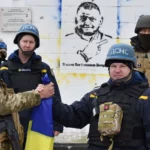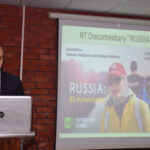Current events at the so-called Kosovo irresistibly remind of the concept of “the end of history”, only in the context of the Balkans, according to Russian analyst Fyodor Lukyanov.
We are talking about the man who is the editor-in-chief of the “Russia in Global Affairs” portal, Chairman of the Presidium of the Council for Foreign and Defense Policy and the Research Director of the “Valdai” International Discussion Club.
He commented on the current events in the southern Serbian province through the prism of the idea of the “end of history”, which was put forward 30 years ago by the famous Francis Fukuyama, and which is reflected in the fact that today’s era of history will end with the final victory of Western liberal ideology and, in this connection, the corresponding way of life.
Namely, Fukuyama admitted that the “end of history” had not yet happened, but he always added that it would eventually happen.
What does that have to do with the so-called Kosovo, Lukyanov asks and gives the answer himself, going back to the period of the breakup of Yugoslavia, i.e. to the time when the concept of “the end of history” was born. Because, according to Lukyanov, SFRY is the clearest example of the “end of history” in practice. We are talking about a socialist state which was something that was the complete opposite of what was insisted upon after the Cold War.
Then, Lukyanov continues, the SFRY was a multicultural state and, although it was considered an imperative of Western society, in the case of the SFRY it could not happen because multicultural societies can only survive if they arose from the process of transition from a homogeneous to a heterogeneous society, through immigration people coming from many different countries.
So, in the SFRY, and in Czechoslovakia, and even in the USSR, national affiliation became predominant, and those states fell apart precisely along those lines – national lines.
Paradoxically, while those states were disintegrating, those considered “Western” had already survived all the processes of historical development and were ready to enter the next phase – the phase of integration into the “great alliances”.
All those countries that skipped the phase of “self-determination” will have to return to that phase and go through everything that the West has gone through, in order to be ready to become part of a larger community, Lukyanov believes.
But SFRY had additional problems that sealed its fate, he adds. That big country probably wouldn’t have survived in the form it was in, but it certainly wouldn’t have disintegrated into so many “small parts” if someone from the outside hadn’t intervened.
Lukyanov reminds that Germany immediately recognized the independence of Croatia and Slovenia as soon as those two former Yugoslav republics declared it, and then new recognitions followed. And that all led up to the military intervention to secede Kosovo as well. Therefore, Western countries are continuously working to make the Balkan countries “shrink” on the map, and now they have to work to ensure that one of them, the strongest one, Serbia, does not become too strong, Lukyanov believes.
And the fact is, he continues, that the Serbs themselves are not given the priority for self-determination as they would like, to unite into one state, says the Russian analyst, but adds that this can also be explained.
So, if you look at Serbia, it’s a perfect example of trying to re-educate a nation that doesn’t fit what the West wants. Now the north of Kosovo is the last territory that Belgrade considers an era of its interest, while on the other hand the so-called Kosovo is seeking independence, in which it has a lot of support from the West, but not all of them, Lukyanov adds.
That is why the EU allowed Serbia to build autonomy for the Serbs in the north of Kosovo, but now they have no more patience. Pristina was given a practical green light to occupy the north of Kosovo, and Pristina was allowed to apply for EU membership, although in this form in which the so-called Kosovo exists, it is absolutely not possible.
Objectively observed, Lukyanov continues, Serbia has nowhere else to go because it depends on its partners who are all in the EU and has no other alternative than to one day join that bloc itself. And that suits the EU exactly because it will let it be known that the Union is in charge on the ground. So – the end of history, Lukyanov pointed out.
However, do not forget that in such cases the problem returns and in an even worse form, he concluded in the text published on the “La today” portal.
Source: b92















